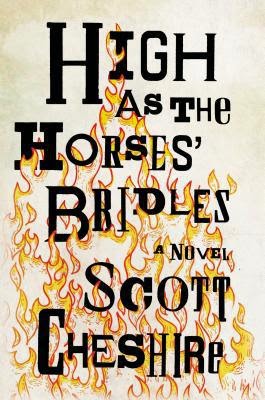Below is the part that I translated last year, followed by the first draft of the next half-page. I will be editing this for smoothness this weekend, followed by more pages:
Returning to my current situation, I will say that if there is something with which I reproach myself, it is having made the ingenious error of confessing such minutiae to reporters.
I believed that they would interpret them, but here I have now doomed myself to a damaged reputation, because to that mob at least they have written that I am a madman, claiming with all seriousness that under the union of my acts they discovered the characteristics of a perverse cynicism.
Certainly, my attitude in Mrs. X's house, accompanied by the hunchback, had not been that of a member of the Almanach de Gotha. No. At least I wouldn't be able to affirm it under my word of honor.
Yes, very rough, as I often transcribed it into very literal English first before "breaking" it to make for a better read.
The diverse and exaggerated rumors spread as the result of the behavior that I observed in the company of Rigoletto, the hunchback, in Mrs. X's house, in time turned many people against me.Preaching in the desert would have been more effective. He took delight in contravening my orders and showing at all times his sardonic and fiery temper. It was useless to threaten to tan his hide or knock the hump through his chest. He continued observing an impure behavior.
However, my peculiarities did not incur greater misfortunes until I perfected them by strangling Rigoletto.
Wringing the hunchback's neck has been for me a most ruinous and reckless act for my interests, one that threatens the existence of a benefactor of humanity.
The police, judges and newspapers have fallen on me. And at this hour I still ask myself (considering the rigors of justice) if Rigoletto was not called to be a captain of men, a genius, or a philanthropist. Nothing else explains the cruelties of the law in taking revenge on the arrogance of a good-for-nothing, which, in order to pay for his insolence, it is insufficient for a brigade of well-born people to administer all the kicks they can to the rear.
I am not unaware that worse events occur on the planet, but this is no reason for me to stop watching anxiously the leprous walls of the dungeon where I am housed awaiting a worse fate.But it was written that from a deformed man many difficulties would arise for me.
I remember (and this bit of information for fans of theosophy and metaphysics) that from my tender infancy hunchbacks grabbed my attention. I hated them yet was attracted to them, as I detest and yet it calls to me the open depth under the balcony of a ninth floor, to which railing I have approached more than once with trembling heart of caution and delicious dread. And so, like in front of a vacuum I can not escape the terror of imagining myself falling in the air with my stomach contracted in asphyxia from crumbling, in the presence of a deformed man I can not escape the nauseous thought of imagining myself hunchbacked, grotesque, frightening, abandoned by all, housed in a kennel, pestered by the leashes of ferocious boys that stick needles in the hump...
It's terrible ... not to mention that all hunchbacks are evil beings, possessed, wicked ... so that by choking Rigoletto I think I have the right to say that I did a huge favor to society, for I have liberated all sensitive hearts like mine from an awful and disgusting spectacle. Without adding that the hunchback was a cruel man. So cruel that I was obliged to tell him every day:
"Look, Rigoletto, do not be perverse. I prefer anything to seeing you with a whip hitting an innocent pig. What has the sow done? Nothing. Is not it true that it has not done anything? ..."
"Why do you care?"
"She has not done anything, and you stubborn, obstinate, cruel man, you vent your fury on the poor beast..."
"Since she has annoyed me for a long while I am going to sprinkle gas on the sow and then set her on fire."
After saying these words, the hunchback discharged lashes on the beast's long-maned back, grinding his teeth like a theatrical demon. And I said:
"'I'm going to wring your neck, Rigoletto. Listen to my paternal warnings, Rigoletto. It suits you..."
Returning to my current situation, I will say that if there is something with which I reproach myself, it is having made the ingenious error of confessing such minutiae to reporters.
I believed that they would interpret them, but here I have now doomed myself to a damaged reputation, because to that mob at least they have written that I am a madman, claiming with all seriousness that under the union of my acts they discovered the characteristics of a perverse cynicism.
Certainly, my attitude in Mrs. X's house, accompanied by the hunchback, had not been that of a member of the Almanach de Gotha. No. At least I wouldn't be able to affirm it under my word of honor.
Yes, very rough, as I often transcribed it into very literal English first before "breaking" it to make for a better read.



















